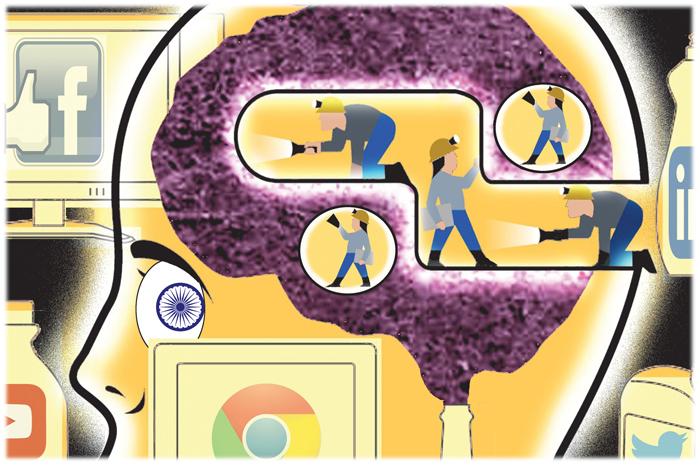Resisting Digital Colonialism

Image Courtesy: Times of India Blogs
They came by boat from Europe in earlier times. Almost every country in the world was colonized at one point. Though most gained independence in the last century, colonialism is in no way a distant memory for nations who still experience an imbalance of power.
It is within this context, that a number of analysts from the Global South are viewing the expansion of Internet technologies from the North with skepticism. Is this a new form of imperialism, not by nation states but by technology corporations?
Renata Avila from Guatemala is a senior digital rights advisor of the World Wide Web Foundation. She is a human rights lawyer and digital rights expert, and sits on the board of Creative Commons.
Q: What do you mean by digital colonialism?
A: Digital colonialism is the new deployment of a quasi-imperial power over a vast number of people, without their explicit consent, manifested in rules, designs, languages, cultures and belief systems by a vastly dominant power.
In the past, empires expanded their power via the control of key assets, from trade routes to oceans, from railways to precious metals. Now, we additionally also have technology empires that control data and computational power to dominate the world.
Just think of how dependent the local information ecosystem is on the whims of Silicon Valley. Here’s one example: In Sri Lanka, Bolivia, Slovakia, Serbia, Guatemala and Cambodia Facebook introduced experimentalchanges to the news feed that instantly reduced visits to pages of publications and organizations at the end of 2017. Nevermind volatile politics or media freedom. Users were never asked, because the relationship with Facebook is neither fair nor democratic.
Q: But why “colonialism”? If people are happy using platforms like Facebook, why frame it in negative terms?
A: Because it’s serious. The foundations of freedom and democracy are at stake when centralized, global agents have the power to monitor, process and mediate all user communications. They analyze personal data and make collective behavior predictable, and the knowledge is privatized and protected by trade secret laws. Honestly, I cannot find positive terms to describe the relationship we have with big tech companies today: it is based on the erosion of basic human rights and data extractivism – and it offers few benefits in return.
Q: What about the billions of people who remain offline?
The world’s offline populations are the disputed territory of tech empires, because whoever gets them locked into their digital feudalism, holds the key to the future.
But this is an ethical dilemma to me. When I think of people in my own country, Guatemala, many don’t have other ways to access information beyond their villages – where even basic utilities like electricity are lacking. If we, the connected and privileged, campaign against companies offering free connectivity, that means people could be disconnected from the global sphere – at least in the short term. But is it real connectivity, if you only visit a few websites and communicate with people you already know? Is the Internet empowering if you cannot create, innovate or collaborate without maximizing the wealth of someone else?
A truncated version of the Internet for the poor is an information diet low in calories, one of mere subsistence and not of human development and economic growth.
Q: What do you suggest as a way to resist digital colonialism?
A: We do not need to resist it, we need to end it.
We need accelerated regulatory reform in the spirit of antitrust legislation. We need to contain the expansion of big tech and their ability to extract data from people on abusive terms.
We need a reinvented knowledge and data commons, and we need to innovate collaborative, publicly funded forms of artificial intelligence for the common good.
This is not a job for grassroots movements alone. To burn down digital colonialism we need governments, municipalities, regions, cooperatives, collective forms of social innovation and collaboration. We need everyone to become aware of what’s at stake, so we can take back our public infrastructure, and build our own sustainable platforms for the future.
Get the latest reports & analysis with people's perspective on Protests, movements & deep analytical videos, discussions of the current affairs in your Telegram app. Subscribe to NewsClick's Telegram channel & get Real-Time updates on stories, as they get published on our website.
























